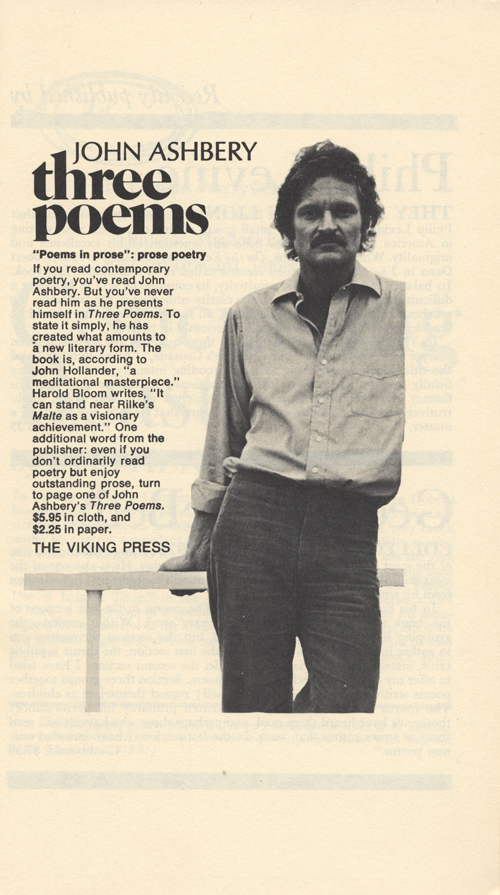Prufrock, Adamantine Stupidity, Tennessee Williams, and Latin American Modernists
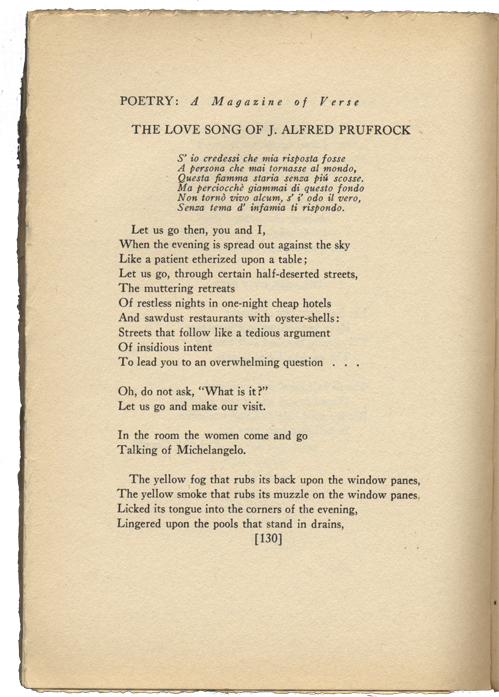
We talk a lot about poets' first appearances in Poetry and one of the most influential, and most frequently mentioned, is T.S. Eliot’s “The Love Song of J. Alfred Prufrock.” The poem appeared in the June 1915 issue of Poetry and at the time of its publication, as his biographical note observes, Eliot had “published nothing hitherto in this country." Reading the poem itself is really much better than reading anything about it, so I'll leave you to it. (If you'd prefer not to flip the PDF pages of the issue you can read the whole poem on one page here.)
Harriet Monroe printed the poem at the encouragement of Ezra Pound, who had taken it upon himself to promote Eliot all over England and abroad. The rest of the issue is rather unremarkable, but it does include a characteristically Poundian rejoinder to a letter by Titus Leroy Weeks that appeared in the April 1915 issue. Weeks’s letter begins “I can but stand in bewilderment before the vast knowledge of Mr. Ezra Pound.... He is the apostle of discontent—I should say pope, infallible,” and ends with more than a few rough verses aimed at Pound. Pound responds:
Mr. Leroy Titus Weeks mistakes my meaning because, like many other people, he "goes off" before he has applied himself diligently to understand what he reads. It is his function, as he says in one place, to "stand bewildered," or as he says in another, "to smear," but he mistakes when he uses metre, and mistakes even more gravely when he accuses me of optimism, the vulgarest of American vices... I am boring my little hole in the adamantine stupidity of England, America, New Zealand and a few places elsewhere. I even enjoy the job.
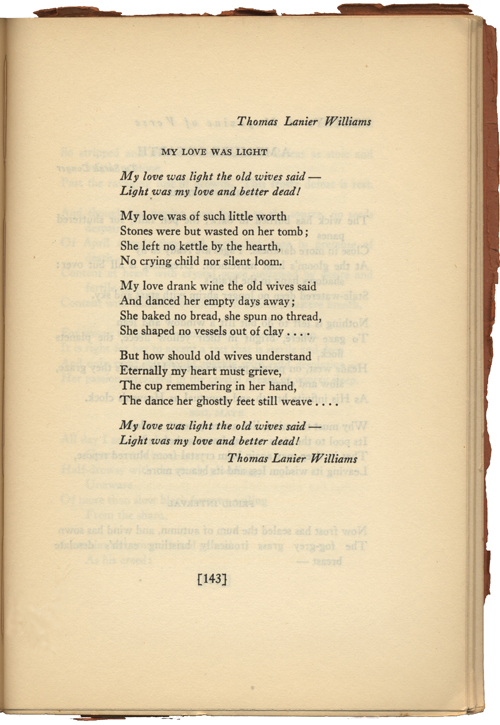
In June 1937, a young Tennessee Williams published two poems in Poetry, under his given name Thomas Lanier Williams. Though Williams is known mostly for his plays, screenplays, and short stories, he was interested in poetry from a young age. Williams had been sending poems to Harriet Monroe for years, and wrote that he “felt quite elated” when Monroe finally accepted “This Hour” in March 1936 and asked to see more of his work. It was Williams first and only publication in the magazine. Seven years later his first successful play, The Glass Menagerie, premiered in Chicago before heading to Broadway.
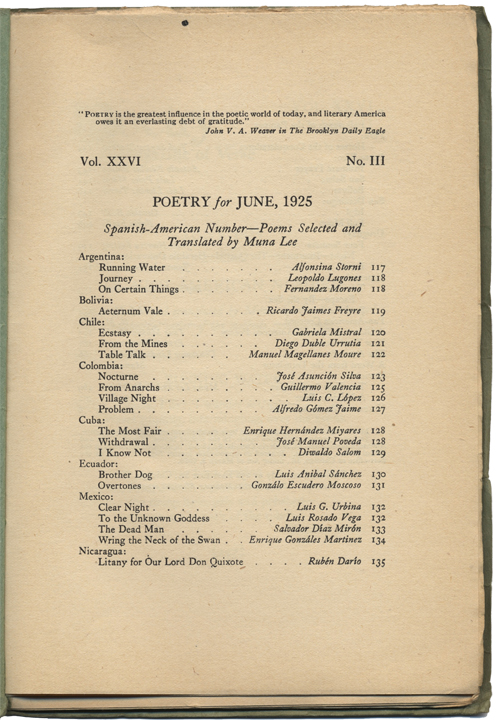
Last month’s post mentioned Poetry’s tradition of special issues. In the same vein is the “Spanish-American Number” that appeared in June 1925 and featured an astonishing thirty-one Central and South American poets. Translated and selected by Muna Lee, the issue focuses mainly on Latin American modernists such as Nicuarguan Rubén Darío, credited as one of the initiators of moderismo. Lee's translations of poems by Alfonsina Storni, Gabriel Mistral, and Juana de Ibarbourou, three prominent Latin American feminists, highlight modernismo's emphasis on eroticism and passionate lyricism. Ibarbourou’s "Bond" shows the influence of European romanticism and symbolism on Latin American modernism:
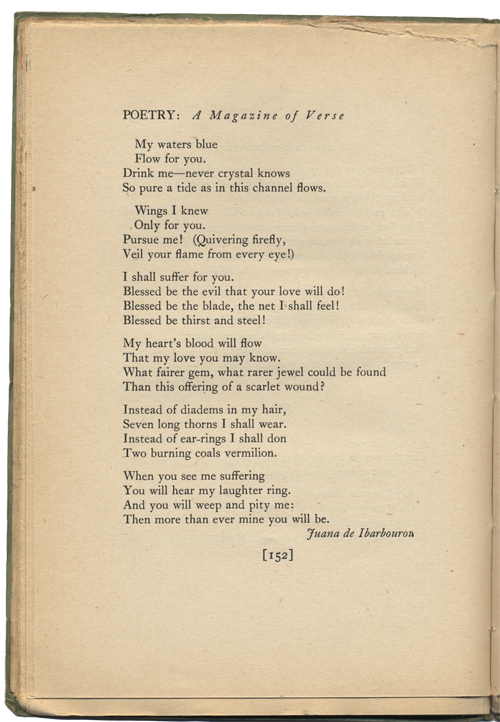
Storni’s “Running Water,” and Mistral’s “Ecstasy” elaborate on these themes. Other must-reads in the issue include José Asunción Silva’s “Nocturne,” Enrique Gonzales Martinez’s “Wring the Neck of the Swan,” and Darío’s “Litany for Our Lord Don Quixote.”
If you liked June's great Back Page image, you won't want to miss our slideshow of Poetry's 1970s covers here. We'll leave you with this wonderful ad from the June 1972 issue.
